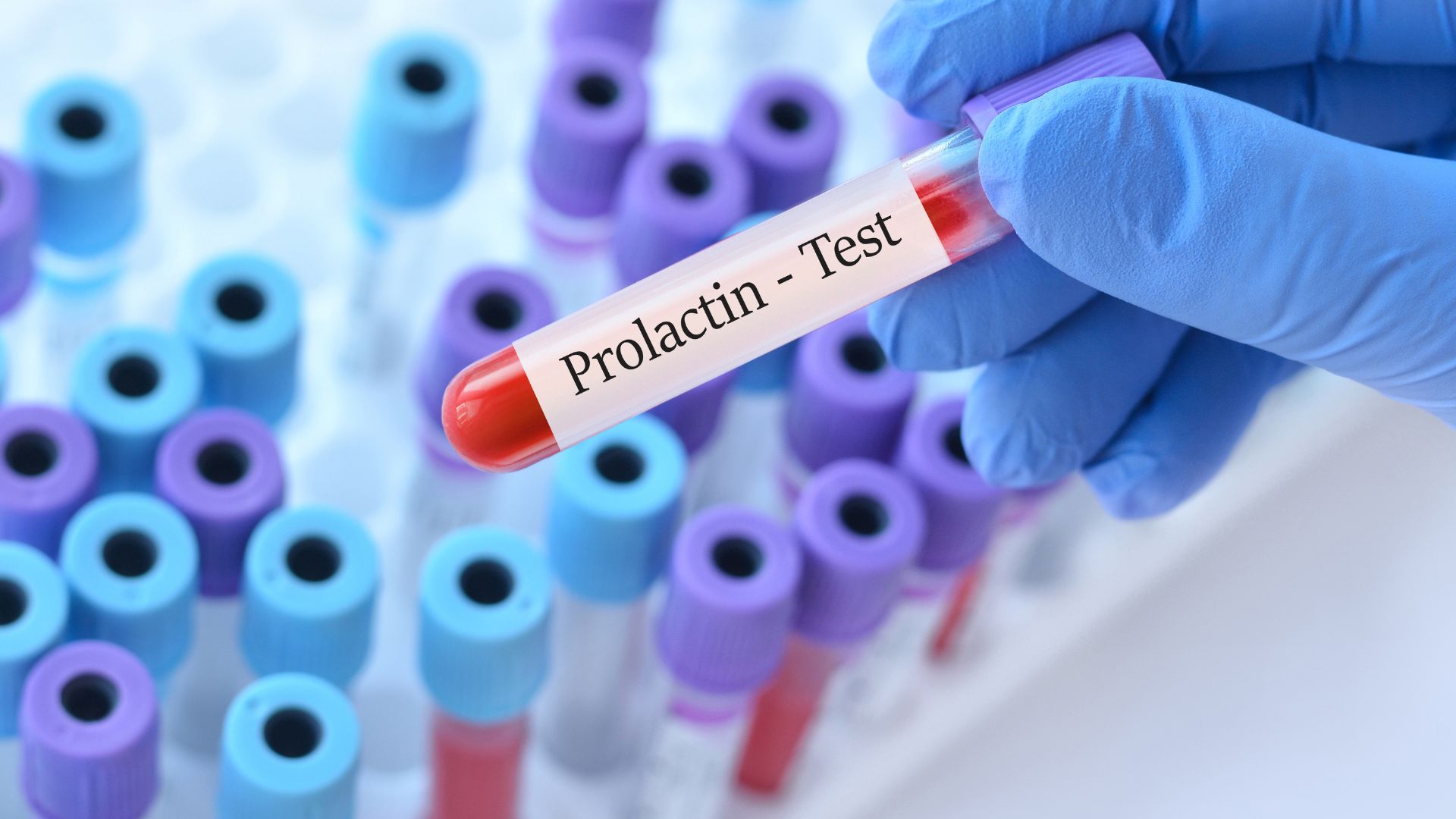As someone who’s spent years researching hormonal health, I’ve noticed a concerning trend: while we often discuss testosterone and estrogen, prolactin often flies under the radar. Yet, this crucial hormone can significantly impact men’s health in ways many don’t expect. Let me break down everything you need to know about elevated prolactin levels in men, backed by current medical understanding and research.
Understanding Prolactin: More Than Just a “Female Hormone”
Despite its reputation as a pregnancy and lactation hormone, prolactin plays several vital roles in men’s bodies too. Think of prolactin as a versatile player in your hormonal orchestra – when it’s in balance, everything runs smoothly. But when levels rise above normal, it can throw off your entire endocrine system.
What’s Considered “Normal” for Men?
For adult men, normal prolactin levels typically range between 2 and 18 ng/mL (nanograms per milliliter). However, these numbers can vary slightly depending on the laboratory and testing method used. What’s crucial isn’t just the number, but how you feel and what other symptoms you might be experiencing.
Signs Your Prolactin Might Be Elevated
Physical Changes
When prolactin levels climb higher than they should, men often notice several physical changes:
- Breast tissue enlargement (gynecomastia) – This isn’t just about appearance; it can be uncomfortable and emotionally challenging
- Decreased muscle mass – You might notice your gym gains aren’t what they used to be
- Changes in body fat distribution – Some men experience weight gain patterns more typically associated with higher estrogen levels
Sexual Health Impact
One of the most significant ways high prolactin affects men is through sexual function:
- Reduced libido – You might notice your sex drive isn’t what it used to be
- Erectile difficulties – This can range from mild to severe
- Fertility challenges – Higher prolactin can interfere with sperm production
What Causes Prolactin to Rise?
Medical Conditions
Several underlying conditions can trigger prolactin elevation:
- Pituitary tumors (prolactinomas) – Usually benign but require medical attention
- Hypothyroidism – When your thyroid gland isn’t producing enough hormones
- Chronic kidney disease – Can affect hormone metabolism
- Liver disease – May impair hormone processing
Lifestyle and Environmental Factors
Your daily habits and environment can influence prolactin levels:
- Chronic stress – Your body’s stress response can trigger prolactin release
- Poor sleep patterns – Prolactin naturally rises during sleep
- Certain medications – Including some antidepressants and blood pressure medications
- Regular marijuana use – Can affect hormone regulation
- Intense exercise without proper recovery – Can temporarily boost prolactin
Taking Action: What You Can Do
Natural Management Strategies
Before jumping to medical interventions, consider these natural approaches:
- Stress Management
- Practice regular meditation or deep breathing
- Incorporate moderate exercise
- Ensure adequate sleep (7-9 hours nightly)
- Dietary Adjustments
- Increase vitamin B6-rich foods (proven to help normalize prolactin)
- Consider zinc supplementation (after consulting healthcare provider)
- Reduce or eliminate caffeine
When to Seek Medical Help
Don’t hesitate to consult a healthcare provider if you experience:
- Persistent sexual dysfunction
- Unexplained breast tissue growth
- Vision changes (can indicate pituitary issues)
- Chronic headaches
- Significant fatigue or mood changes
Treatment Options
Medical Interventions
When lifestyle changes aren’t enough, several medical treatments are available:
- Dopamine agonists (like cabergoline or bromocriptine)
- Hormone replacement therapy (in some cases)
- Treatment of underlying conditions
Monitoring and Follow-up
Recovery isn’t just about getting on treatment – it’s about staying on track:
- Regular blood tests to monitor prolactin levels
- Adjusting treatments as needed
- Addressing any side effects promptly
Living with High Prolactin: A Personal Perspective
Managing elevated prolactin isn’t just about numbers on a lab report – it’s about quality of life. I’ve seen many men struggle initially but achieve significant improvements through proper treatment and lifestyle changes. The key is persistence and working closely with healthcare providers to find the right approach for your specific situation.
Looking Ahead: Prevention and Maintenance
Long-term Strategies
Maintaining healthy prolactin levels is an ongoing process:
- Regular health check-ups
- Consistent sleep schedule
- Stress management practices
- Balanced exercise routine
- Healthy diet rich in nutrients that support hormonal health
Red Flags to Watch For
Stay vigilant for these warning signs:
- Sudden changes in sexual function
- Unexpected weight gain or loss
- New or worsening headaches
- Changes in vision or breast tissue
Final Thoughts
Understanding and managing prolactin levels is crucial for men’s health, but it doesn’t have to be overwhelming. With the right knowledge, support, and treatment approach, most men can successfully manage this condition and maintain their quality of life. Recall that everyone travels a different path; what helps one person might not help another. The key is working with healthcare providers to find your optimal treatment path.
Whether you’re just learning about prolactin or actively managing high levels, remember that this condition is both common and treatable. Don’t hesitate to reach out to healthcare providers – they’re there to help you navigate this journey and find the best solution for your specific situation.



